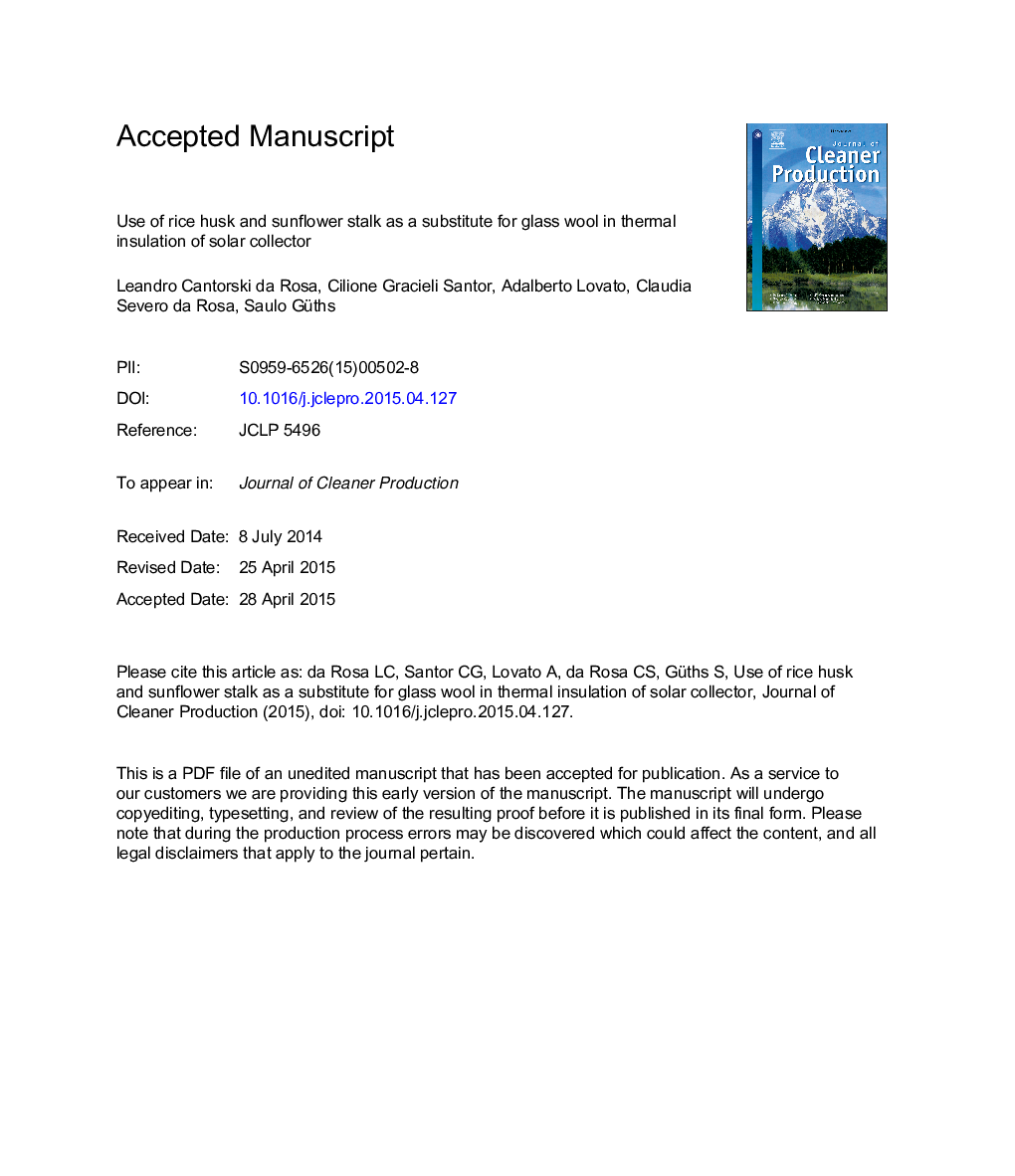| Article ID | Journal | Published Year | Pages | File Type |
|---|---|---|---|---|
| 8103350 | Journal of Cleaner Production | 2015 | 34 Pages |
Abstract
Sources of clean energy are becoming increasingly common, and the use of solar thermal energy has also been rising. Increased agricultural production exerts a negative pressure on the environment, particularly regarding the use of agricultural waste. Agricultural waste materials are generated in large quantities in Brazil and two residues that stand out in particular are rice husk and sunflower stalks. This study aimed to construct a thermal insulating board, made from rice husk and sunflower stalks, for use in a solar collector, and to compare its dynamic performance with boards of glass wool used in solar collectors for heating water. Analyses of the thermal resistance of the rice husk and sunflower stalks were performed at different times and temperatures. The test results showed that the rice husks did not change visually and the sunflower stalks showed a slight darkening of the edges at a temperature of 150 °C for 2 h. The rice husks and sunflower stalks showed weight loss at the same conditions. Six insulating boards were built, which were composed of different proportions of rice husks, sunflower stalks, gypsum as binder, and jute fabric as a design element. The boards were analyzed for thermal conductivity. All the boards showed low thermal conductivity, but the plate that was selected was chosen because it was the firmest for handling during the experiment, as well as being the easiest to construct and to assemble in the collector. This board behaved in a similar way to glass wool, in terms of the function of thermal insulation in solar collectors for heating water. The use of different agricultural waste materials from the same geographical region in the composition of a thermal insulator, which was evaluated in real conditions in the field, contributes to the study of the development of composites from renewable materials.
Related Topics
Physical Sciences and Engineering
Energy
Renewable Energy, Sustainability and the Environment
Authors
Leandro Cantorski da Rosa, Cilione Gracieli Santor, Adalberto Lovato, Claudia Severo da Rosa, Saulo Güths,
